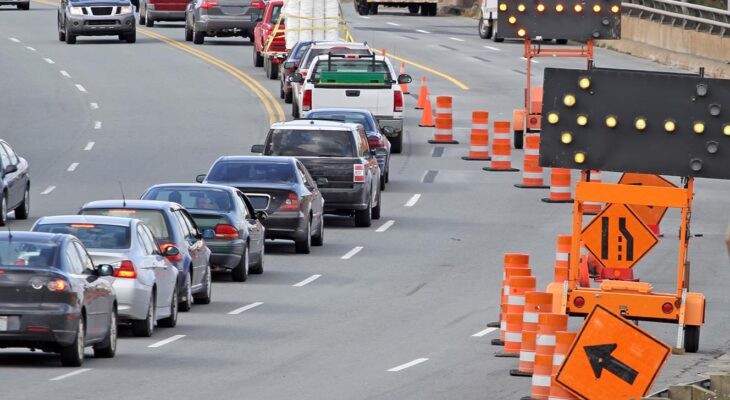When construction or road maintenance occurs, work zones can pose potential risks for both workers and motorists. Effective traffic control plays a crucial role in ensuring that work zones are safe, organized, and efficiently managed. Salus Traffic Control provides essential services to maintain safety standards in these areas, reducing risks and improving the flow of traffic. This article explores why traffic control is so important for work zones and the benefits it offers to everyone on the road.
1. Enhances Worker Safety
One of the primary goals of traffic control in work zones is to protect the safety of the workers. Construction sites can be hazardous, and adding moving vehicles into the mix increases the risks. Properly implemented traffic control systems, including barriers, cones, and clear signage, create a safe buffer between workers and traffic.
By guiding vehicles safely through or around the work zone, traffic control reduces the chances of accidents and helps maintain a secure environment. The presence of traffic control professionals further enhances safety by providing real-time management and addressing unforeseen issues that may arise.
2. Prevents Accidents and Confusion for Drivers
Work zones often create new road layouts, detours, or lane closures, which can be confusing for drivers. Clear, organized traffic control helps prevent accidents by directing vehicles safely and providing drivers with the information they need to navigate these changes. With Salus Traffic Control implementing professionally managed systems, drivers can approach work zones with a better understanding of speed limits, detours, and merging points.
The strategic placement of traffic signs and barriers, along with clear directional indicators, significantly reduces driver confusion. This not only prevents accidents but also ensures a smooth flow of traffic, minimizing sudden stops and reducing road rage or frustration.
3. Minimizes Traffic Delays and Maintains Flow
Traffic delays are a common inconvenience near work zones, particularly during peak hours. Effective traffic control reduces congestion by establishing clear pathways and maintaining steady traffic flow around construction areas. Traffic controllers may use strategies like alternating traffic, setting up temporary traffic lights, or providing flagging personnel to ensure minimal disruption.
By managing vehicle movement proactively, traffic control services allow motorists to pass through work zones more efficiently, reducing backups and delays. This minimizes inconvenience for road users and helps maintain a balanced flow, even in high-traffic areas.
4. Ensures Compliance with Safety Regulations
Work zones are subject to strict safety standards and regulations. Effective traffic control ensures that these guidelines are followed, creating a safe environment that meets industry and governmental standards. Failure to comply with these regulations can lead to fines, legal issues, and safety risks.
Partnering with a professional service like Salus Traffic Control ensures that the work zone adheres to all necessary safety and legal standards. Professional traffic control companies are familiar with regional guidelines and best practices, ensuring that all elements of the control setup comply with regulations, protecting both workers and road users.
5. Protects Vulnerable Road Users
Pedestrians, cyclists, and other vulnerable road users are at heightened risk in work zones. Proper traffic control takes into account the needs of these individuals by providing safe paths, clear signage, and barriers that direct them away from hazardous areas.
For example, pedestrian pathways are often rerouted around work zones, with designated crosswalks and fencing to prevent accidental entry into dangerous areas. Cyclists can benefit from clear signage indicating alternative paths or reduced speed limits in construction zones, helping them navigate safely.
6. Improves Efficiency of Construction Projects
An organized work zone with efficient traffic control measures helps construction crews complete projects on schedule. When traffic is effectively managed, workers can focus on their tasks without constant interruptions or safety concerns. Additionally, by reducing accidents and disruptions, traffic control minimizes project delays, allowing the team to work at a steady pace.
Improved efficiency in work zones also has financial benefits. By minimizing disruptions and maintaining a safe environment, projects can stay on budget and meet deadlines more consistently, benefiting contractors, clients, and the community.
7. Supports Emergency Response Access
In the event of an emergency, such as an accident or medical situation near a work zone, it is essential for emergency vehicles to have clear and safe access. Traffic control ensures that designated pathways are in place for ambulances, fire trucks, and other response units to reach the site without delay.
Professional traffic control services can quickly adapt to emergency situations by rerouting traffic or providing immediate guidance to ensure that emergency personnel can access the work zone safely and efficiently.
Essential Elements of Effective Work Zone Traffic Control
To achieve these benefits, traffic control in work zones involves several key elements:
- Signage and Signals: Proper signs and signals guide drivers and communicate essential information like speed limits, lane closures, and detour routes.
- Barriers and Cones: Physical barriers and cones are crucial for defining safe zones and separating workers from moving vehicles.
- Flaggers and Controllers: Trained flaggers or controllers provide direct, real-time management, helping drivers navigate complex work zones safely.
- Clear Pathways for Vulnerable Road Users: Marked paths for pedestrians and cyclists ensure their safety while reducing the chances of entering restricted areas.
Preparing Drivers and Communities for Work Zone Changes
Work zones can be disruptive, but community awareness can ease the transition. Here are some ways traffic control services prepare drivers and communities:
- Advance Warning: Informing the public about upcoming work zones allows drivers to plan alternative routes or adjust travel times.
- Public Communication: Regular updates through social media, signage, and local news help drivers understand the scope and duration of the project.
- Feedback Loops: Taking feedback from community members helps traffic control teams understand issues or challenges that may arise and address them proactively.
Conclusion: The Value of Professional Traffic Control in Work Zones
Effective traffic control is essential for maintaining safety, reducing delays, and ensuring smooth operations in work zones. By preventing accidents, protecting workers, and minimizing disruptions, traffic control creates a safer environment for everyone on the road. For those managing construction or road projects, professional traffic control services like Salus Traffic Control offer the expertise and resources needed to establish secure, efficient work zones that adhere to industry standards. Investing in high-quality traffic control solutions enhances safety, maintains traffic flow, and supports the successful completion of projects in high-risk areas.












